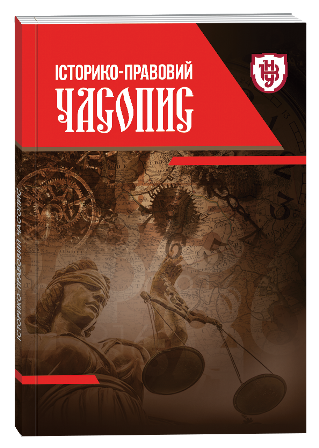CERTAIN CONCEPTUAL ISSUES OF INTERNATIONAL ECONOMIC SANCTIONS INFLUENCE OVER THE RIGHTS, INTERESTS AND FREEDOMS OF PARTICIPANTS OF ECONOMIC JURIDICAL RELATIONS
DOI:
https://doi.org/10.32782/2409-4544/2024-1/8Keywords:
international economic sanctions, subjective economic rights, juridical economic freedoms, economic relationships, international economic relationshipsAbstract
The article deals with considerations of the certain conceptual issues of international economic sanctions influence over subjective rights, interests and freedoms of the participants of legal economic relationships. The author analyzes the notions of an international economic sanctions as well as causes of their influence over subjective rights, interests and freedoms of the participants of legal economic relationships. The classification of international economic sanctions is conducted. It is concluded that as a rule state take part in circulation of economic goods in indirect form, particularly trough participation in business entities or state enterprises. And when state do not participate property operations directly the only revenue it gets are taxes paid of such operations by their participants. Consequently the implementation of international economic sanctions almost always influence rights, interests and freedoms of juridical economic relationships. The subjective rights, interests and freedoms of appropriate subjects as a rule become the direct aim of the international economic sanctions and at the same time intermediate aim on the way to the main goal that is to weak the economy of a state to which appropriate sanctions sent. From that point of view formation of concrete international economic sanctions mechanisms has need to be defined not only with regard for the economic consequences of appropriate means for state that send appropriate sanctions and to state to which they are sent but also with regard for features of principles of formation of economic relationships within state appropriate sanctions send to and taking into account the specificity of juridical mechanisms of appropriate sanctions implementation. Just such approach could provide the application of the most effective economic instruments in every concrete situation and let to choose those of them that are able to achieve the purpose.
References
Bengtsson M. Economic Sanctions Go Smart. A human rights perspective: Master Thesis. 2022. 51 p.
Blad J. Economic Sanctions and Repression. The effect of economic sanctions on repression conditional on levels of democracy: Student thesis. 2019. 34 p.
Syschuk A., Pavliha N., Teteruk O. The Mechanism of International Economic Sanctions Influence on the National Economy. Економічний. часопис Східноєвропейського нац. Університету імені Лесі Українки. 2017. № 2. С. 18–24.
Illieva J., Dashtevski A., Kokotovic F. Economic sanctions in international law. UTMS Journal of Economics. 2018. Vol. 9. P. 201–211.
Запровадження санкцій у США та країнах Європи: інформаційна довідка. URL: https://pdf.usaid.gov/pdf_docs/PA00XH8F.pdf (access date: 05.10.2023).
Про санкції: Закон України від 14.08.2014 р. № 1644-VIІ. URL: https://zakon.rada.gov.ua/laws/show/1644-18#Text
Постанова Вищого антикорупційного суду від 20.03.2023 р. URL: https://reyestr.court.gov.ua/Review/109643500 (дата звернення: 05.10.2023).
United Nations Charter (full text). URL: https://www.un.org/en/about-us/un-charter/fulltext (access date: 06.10.2023).
Sossai M. Legality of extraterritorial sanctions. Economic Sanctions in International Law and Practice. London and New York: Routledge. Taylor & Francis Group. P. 62–79.
Thouvenin J-M. History of implementation of sanctions. Economic Sanctions in International Law and Practice. London and New York: Routledge. Taylor & Francis Group. P. 83–92.







